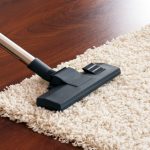Often in manufacturing, fabrication, prototype development or in new or existing product evaluation there is a need for very specific types of testing. Often this is done on a component or material basis and then the best materials or options are considered in light of the big picture for the final product.
In these types of situations, particularly when there are polymers involved, there may be a need for testing how a specific material will flow based on the application of specific forces. If this is the case, the tests will be conducted using a rheometer.
A Simple Explanation
To be tested by a rheometer the material has to be in the form of a slurry, suspension or a liquid. This is not a device that can be used to test a solid, there has to be the ability for the material tested to flow.
Some liquids, slurries or suspensions will have a consistent type of flow that can be measured as a single value. With these types of liquids, a different type of testing devices, known as a viscometer will be all that is required.
Viscosity, or the consistent flow of the liquid, is measured as the resistance of the liquid when there is a shear stress present that is causing a deformation. The shear force or stress is applied in a parallel fashion to the face of the liquid.
A rheometer, on the other hand, is used to measure matter that is in a state that allows it to flow. Concrete is a good general example of this as it is a solid that is in a state that is able to flow when it is being poured. The testing device would apply different pressures in the form of shear to see how the material being tested alters flow patterns based on the changes in pressure.
There are also some of these testing devices that are used to measure what is known as extensional stress. This is a test that pulls the material long its face not parallel to the face as seen with shear.
Measurement Options
With rheological measuring equipment, it is possible to determine how plastics, both thermosetting and thermoplastics, rubber and other similar types of materials will respond to specific types of stress.
With different options in test equipment to handle specific testing needs, finding the right type of device will be critical. Working with a company offering these specialized types of devices will be essential in getting the best match for your needs.





